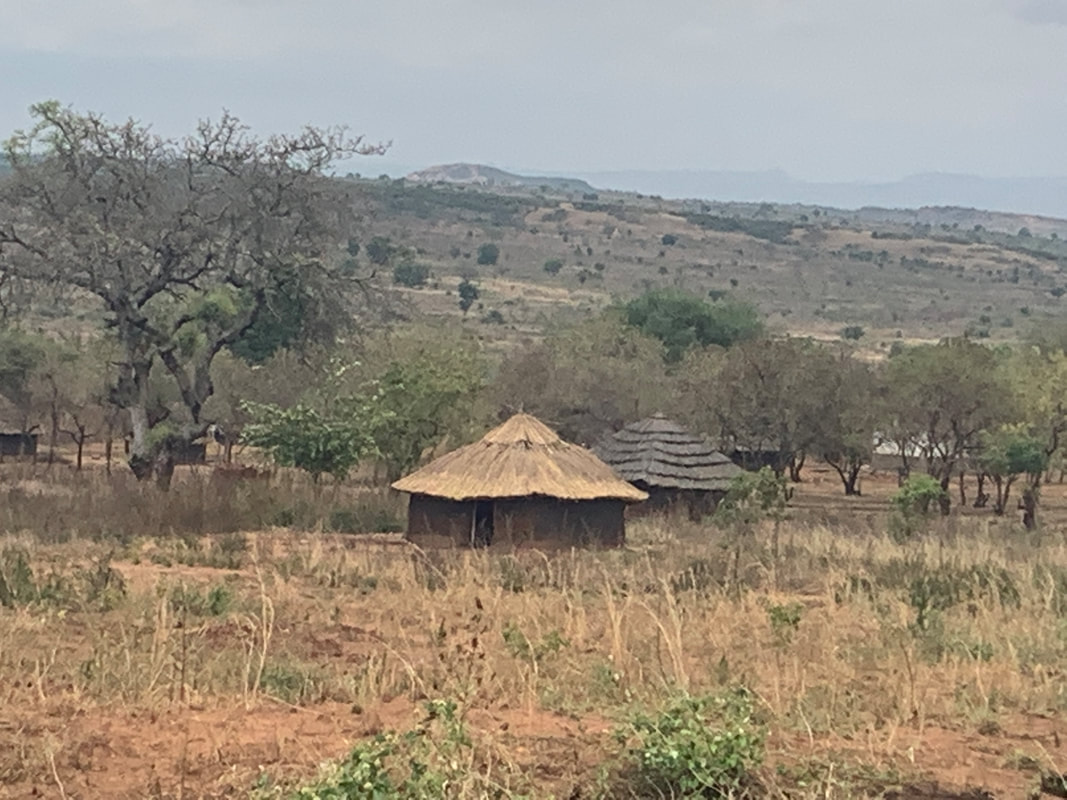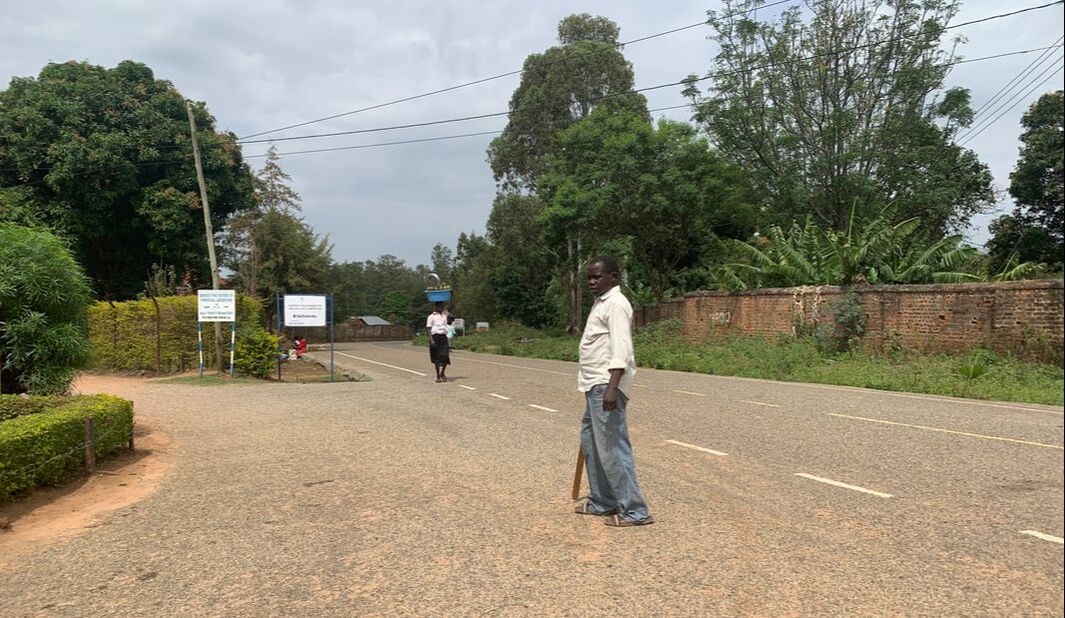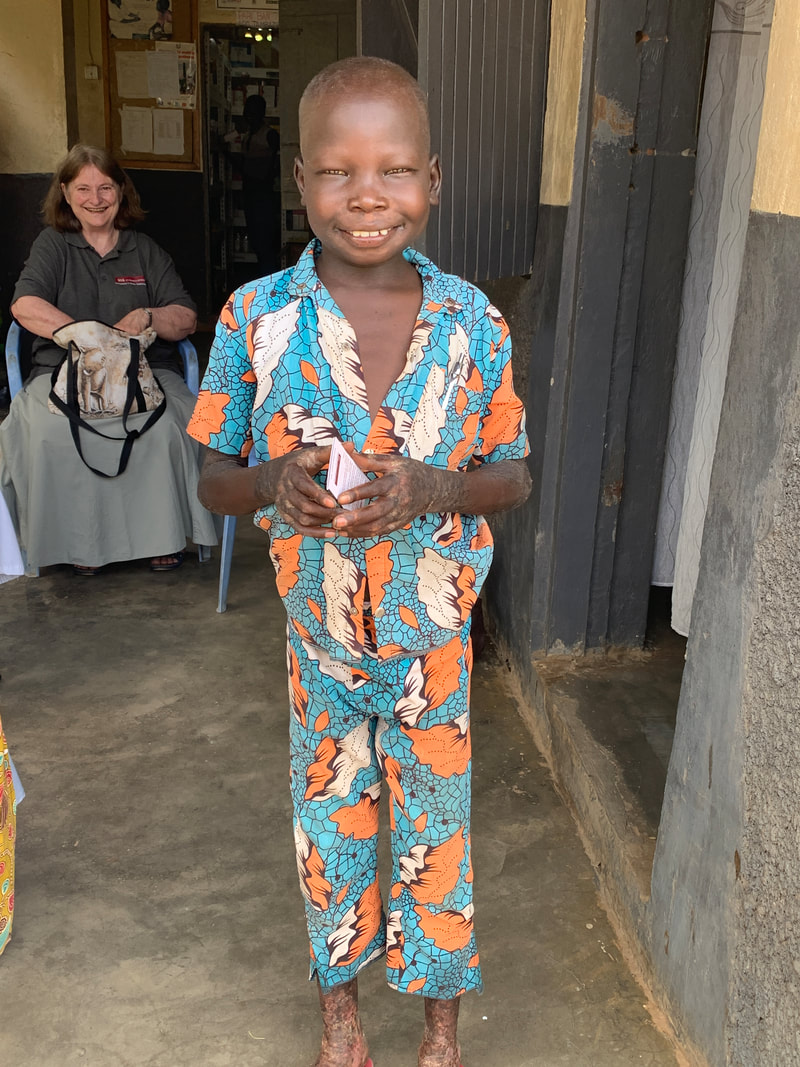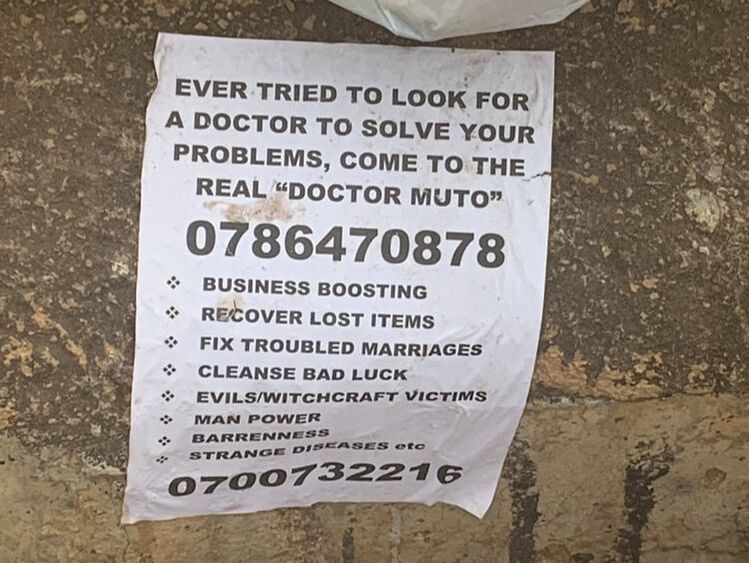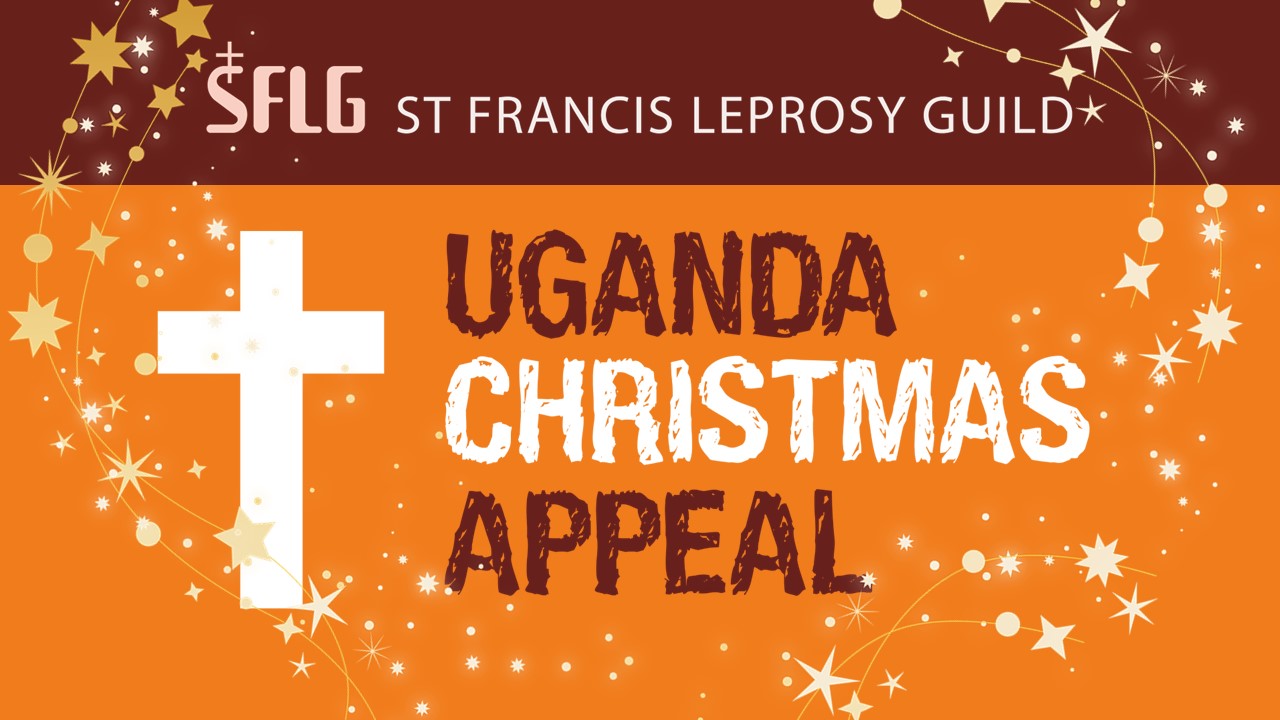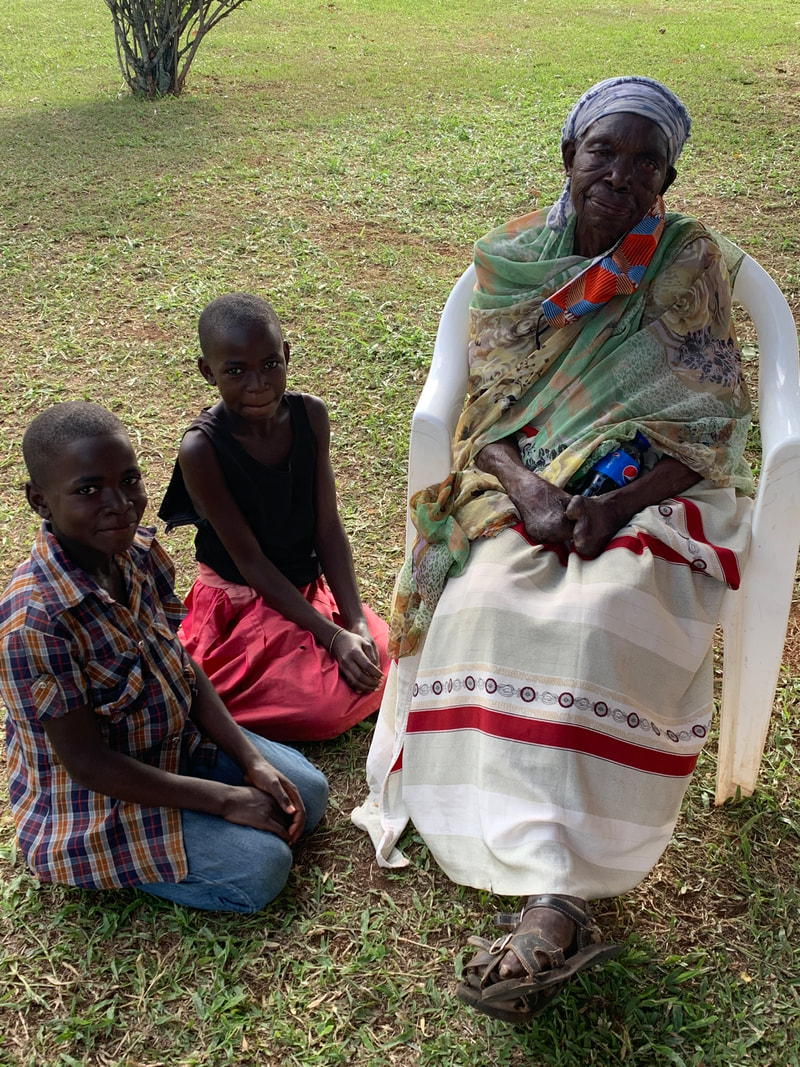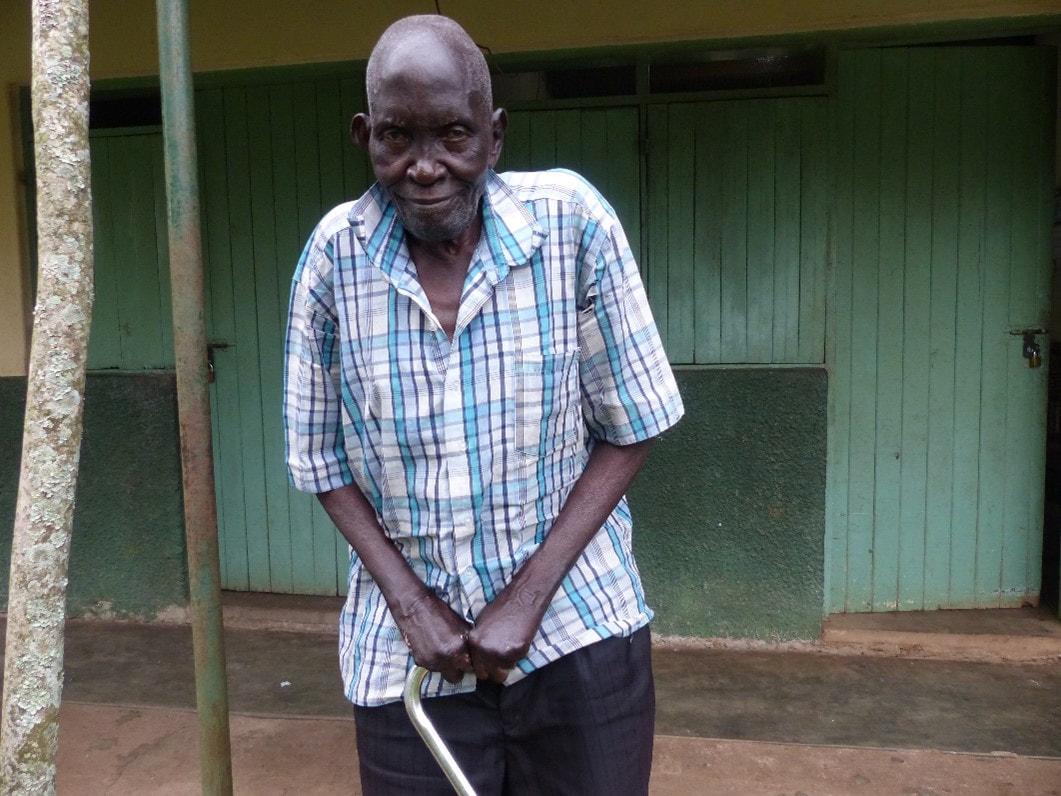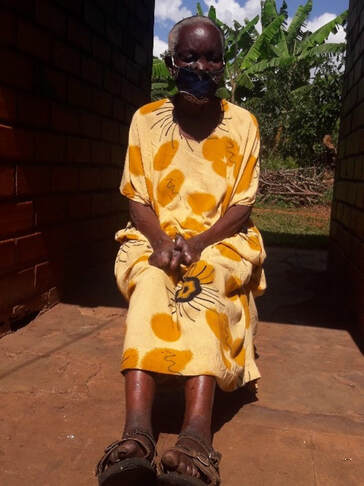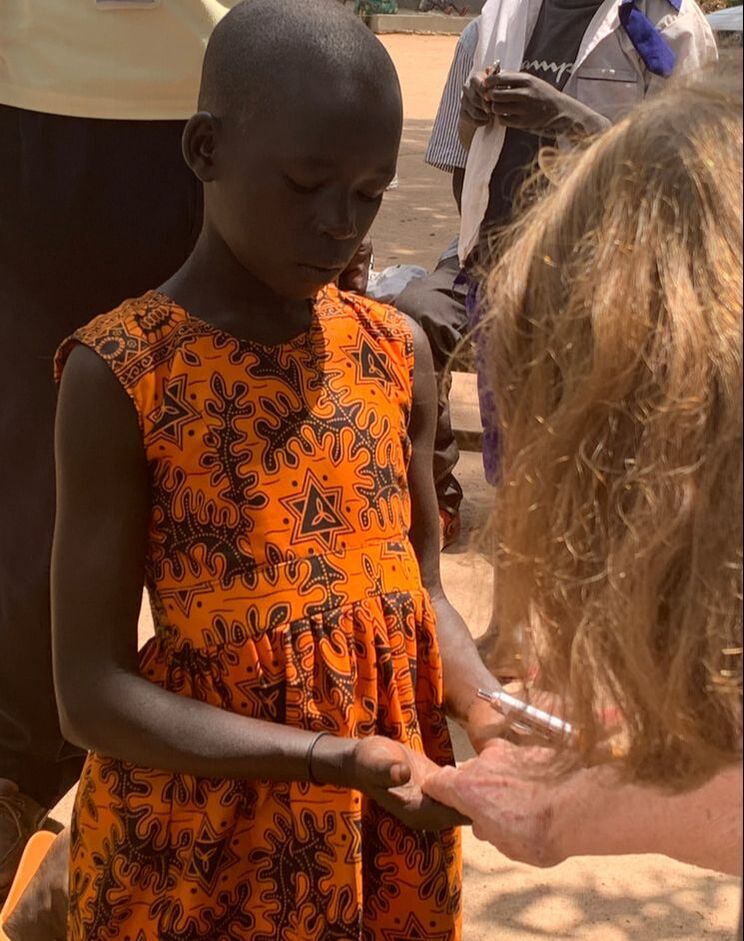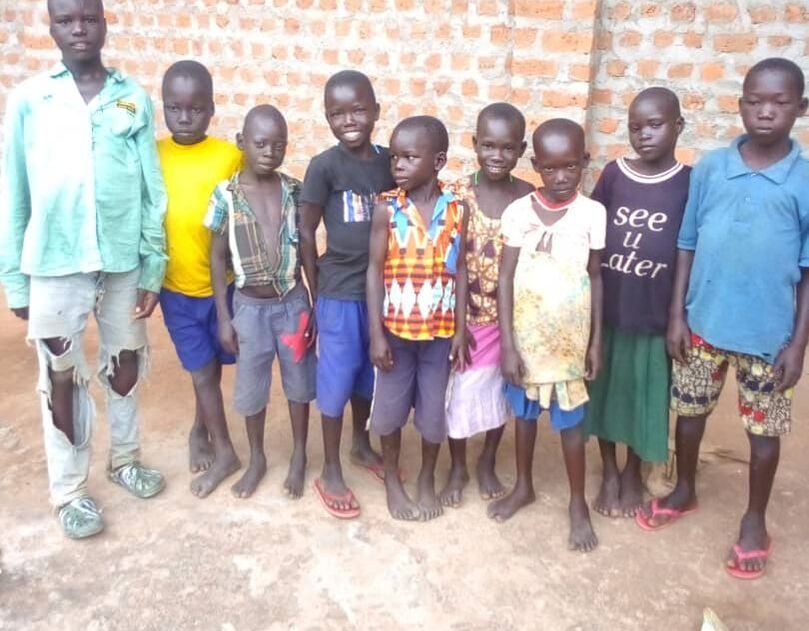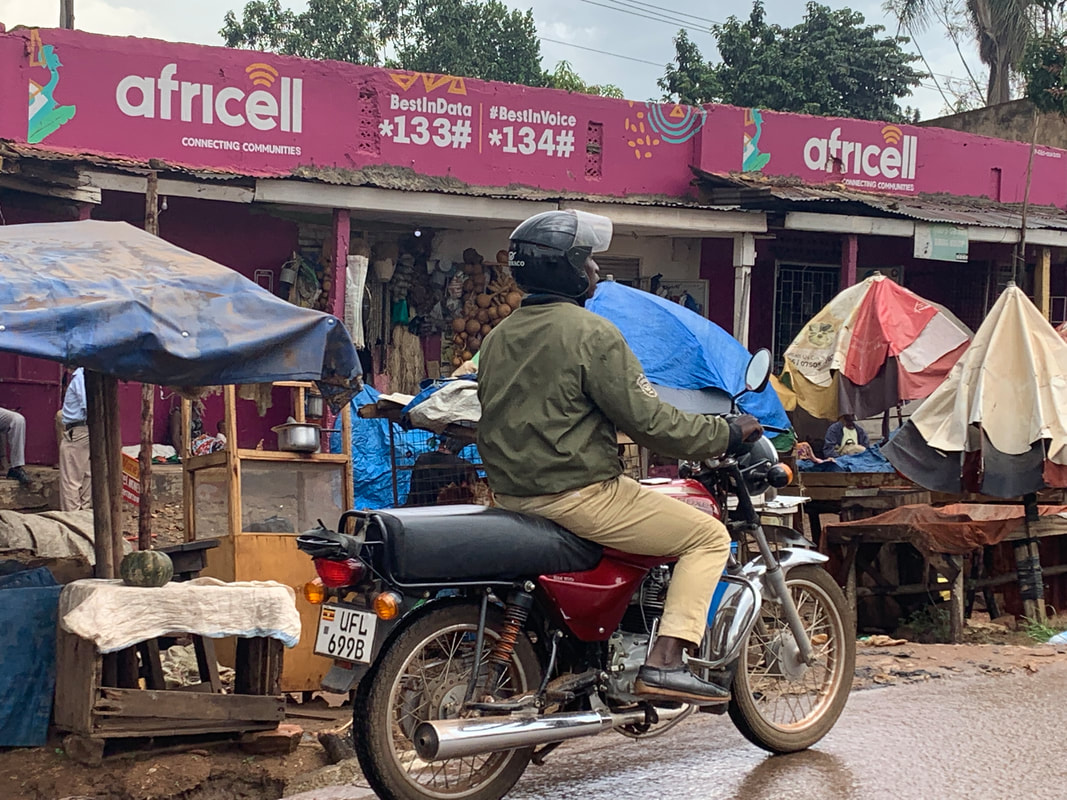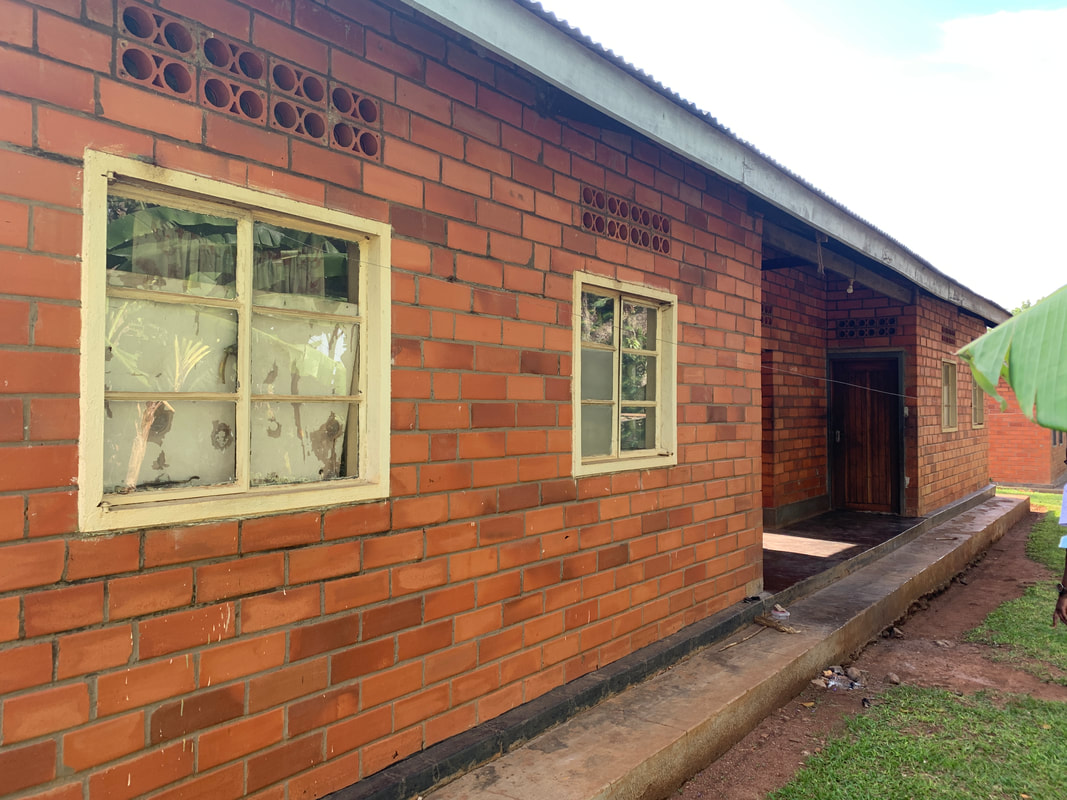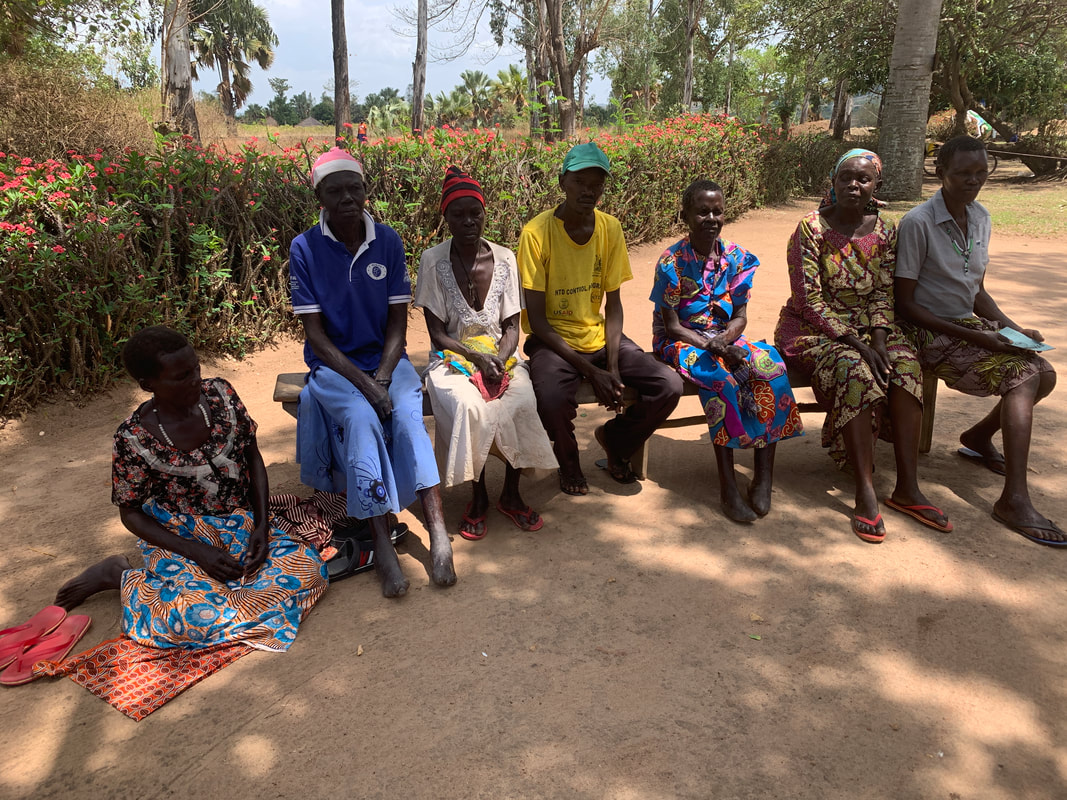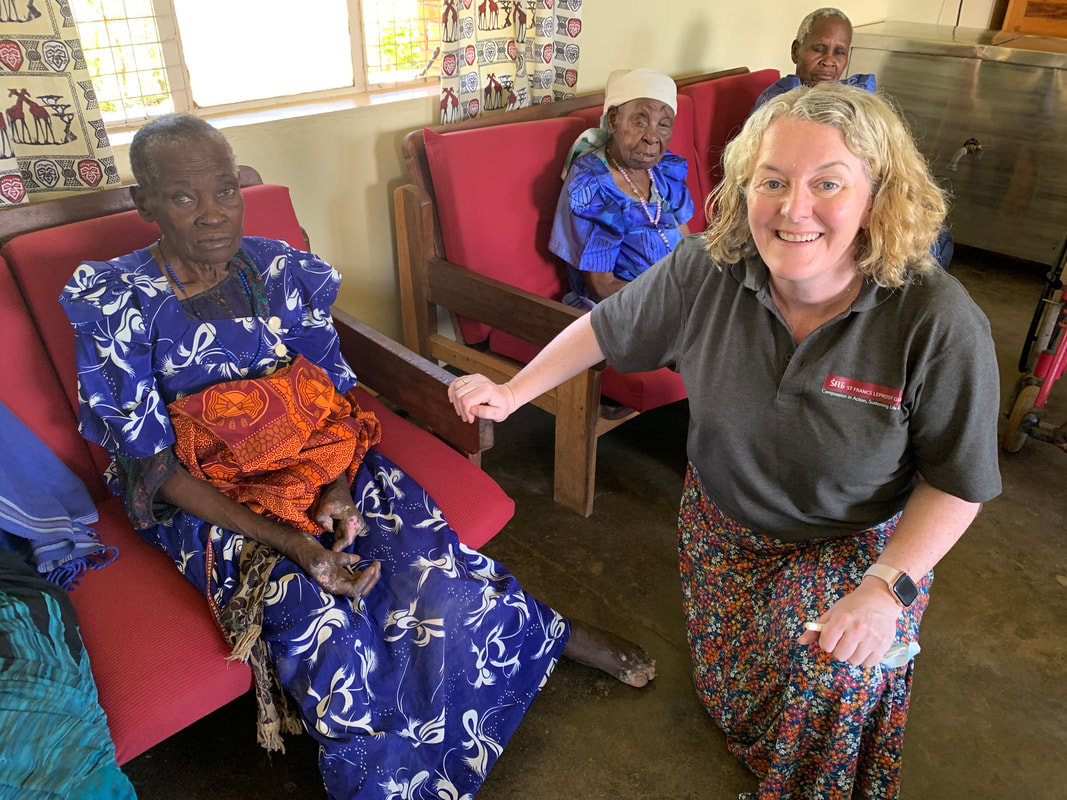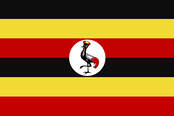UGANDA christmas appeal
A different Christmas story
Once upon a time, a little boy lived with his family in a remote village in Uganda. When he was four years old, he developed signs of leprosy. A painful, red rash covered his body and then his limbs started to weaken. Eventually he could hardly walk.
Convinced his son was cursed by evil spirits, his father planned to kill him. But suspecting the truth and to stop his tragic death, his uncle stole him away. He took the boy to our leprosy centre, Aripea, near Arua.
Here they diagnosed him with leprosy and treated him with Multidrug Therapy. Five months later he can walk again, and his rash has improved. When his treatment is finished, there will be no visible signs of leprosy.
But the boy cannot return home to his family. His father doesn’t believe in modern medicine or that leprosy can be cured. So instead, he will grow up at Aripea, which is funded by charities like ours.
At Aripea, the boy has been given a new name as well as a new home. They have called him Francis.
Every penny you give this Christmas will support people affected by leprosy in Uganda
St Francis Leprosy Guild supports four leprosy centres in Uganda. Two healthcare centres which screen people for leprosy and provide treatment; Aripea and Ediofe, located in Arua near to the border with Congo and South Sudan. Two leprosy hospitals which also care for long-term residents; Nyenga and Buluba, located near Jinja in southern Uganda.
Thankfully we encountered Francis before he developed visible signs of leprosy. For some people, a late diagnosis of leprosy means terrible disabilities develop. Their families and communities may not care for them or even wish to associate with them anymore. They are often abandoned and outcast and dependent on our centres for the rest of their lives.
Caring for people with leprosy
Buluba and Nyenga treat and rehabilitate patients affected by leprosy by providing multidrug therapy, surgery, counselling, self-care training to prevent leprosy ulcers and, assistive devices such as wheelchairs and prosthetic limbs. Every penny you give this Christmas will provide long-term care for residents at Buluba and Nyenga such as Muwanga and Elizabeth.
Muwanga and Elizabeth
Buluba and Nyenga treat and rehabilitate patients affected by leprosy by providing multidrug therapy, surgery, counselling, self-care training to prevent leprosy ulcers and, assistive devices such as wheelchairs and prosthetic limbs. Every penny you give this Christmas will provide long-term care for residents at Buluba and Nyenga such as Muwanga and Elizabeth.
Muwanga and Elizabeth
|
Muwanga was a farmer, married with two children, when he began to experience frightening symptoms including numbness, a loss of feeling in his limbs and nodules all over his body.
He was referred to our centre in Buluba, by a priest who had heard about leprosy. Despite some leprosy reactions, Muwanga's symptoms were lessened by treatment with multidrug therapy. Today, the centre continues to provide him with food, accommodation, physiotherapy, ongoing treatment and protective equipment. Click here for more of Muwanga's story. |
When Elizabeth was a girl, she developed pigmented patches of skin on her face and back. She was treated for leprosy but it wasn't successful. By the time Elizabeth was 26, and married with five children, her condition had worsened and she was taken to Nyenga, after discrimination by her family and community.
Elizabeth needed four years of treatment for leprosy. During this time, she lost her fingers and toes and suffered a facial deformity. She continues to live at Nyenga. Click here for more of Elizabeth's story |
Screening people for leprosy
Screening, diagnosing and treating people with leprosy will prevent leprosy disabilities from developing and reduce leprosy infection from spreading in communities. Every penny you give this Christmas, will help Aripea build its screening capacity to find and treat more people with leprosy, sooner.
Screening, diagnosing and treating people with leprosy will prevent leprosy disabilities from developing and reduce leprosy infection from spreading in communities. Every penny you give this Christmas, will help Aripea build its screening capacity to find and treat more people with leprosy, sooner.
Education for children affected by leprosy
For children with leprosy, who have been abandoned by their families, our centres will provide treatment and a home. But to lead an independent, fulfilled life, they also need an education. Although schooling is free in Uganda, children are unable to attend unless they have a uniform, books and the equipment required for their lessons.
Every penny you give this Christmas, will help buy these items so that children like Francis, will have an education and the chance of a future and a fulfilled life.
For children with leprosy, who have been abandoned by their families, our centres will provide treatment and a home. But to lead an independent, fulfilled life, they also need an education. Although schooling is free in Uganda, children are unable to attend unless they have a uniform, books and the equipment required for their lessons.
Every penny you give this Christmas, will help buy these items so that children like Francis, will have an education and the chance of a future and a fulfilled life.
Taking leprosy care into the community
Ediofe has many patients who live in remote villages and, without transport, cannot visit the centre. Every penny you give this Christmas, will help buy a motorcycle so that health-workers can travel to remote communities and care for people with leprosy in their own homes.
A motorcycle means we can to trace the contacts of people diagnosed with leprosy, to check if they too have the disease and can be treated early to prevent disability.
Ediofe has many patients who live in remote villages and, without transport, cannot visit the centre. Every penny you give this Christmas, will help buy a motorcycle so that health-workers can travel to remote communities and care for people with leprosy in their own homes.
A motorcycle means we can to trace the contacts of people diagnosed with leprosy, to check if they too have the disease and can be treated early to prevent disability.
More screening, treatment and care for people with leprosy
An unused building at Nyenga needs converting into a hospital block. It is needed, urgently, to treat more leprosy patients. Every penny you can give this Christmas, will help towards the renovation of this building, and provide eight new rooms for leprosy screening, treatment and care.
An unused building at Nyenga needs converting into a hospital block. It is needed, urgently, to treat more leprosy patients. Every penny you can give this Christmas, will help towards the renovation of this building, and provide eight new rooms for leprosy screening, treatment and care.
We are determined to provide the long-term care that patients need so they feel loved, secure and have a future. We are always seeking ways to expand the capacity of our centres to monitor, diagnose and treat leprosy before it causes disabilities, spreads into communities and destroys peoples' lives.
But we can't do it without you
It's lot to ask, when bills are mounting up at home and children like Francis are far, far away. But we must not turn our backs on people with leprosy. We must not abandon them, especially at Christmas. I promise that every penny you give to our Uganda appeal this Christmas will be spent on the care and love that people with leprosy deserve. Together we can show that they are not forgotten.
Merry Christmas. Clare McIntosh, Chief Executive Officer, St Francis Leprosy Guild
PS: every penny that you can give - that's 100% of donations - will go to our centres in Uganda.
Show people affected by leprosy in Uganda that they are not forgotten this Christmas
|
The republic of Uganda is a landlocked country in central-eastern Africa. It is bordered to the east by Kenya, to the north by South Sudan, to the west by Democratic Republic of Congo, to the south-west by Rwanda and, to the south by United Republic of Tanzania. It has a population of over 47 million people.
Since Uganda gained independence in 1962, the nation has experienced violent conflict including eight years of military dictatorship by Idi Amin. Uganda suffers numerous human rights issues with 1.4 million displaced persons caused by internal conflict, widespread torture, attacks on political freedom, child labour, slavery and people trafficking.
Although Uganda is not a Global Priority Country for leprosy, three of its neighbours, South Sudan, DRC, and URC are endemic and the borders are porous. In some African countries, leprosy is seen as a curse and those with leprosy are greatly feared and rejected. Uganda ranks 159 out of 189 in the Human Development Index |
